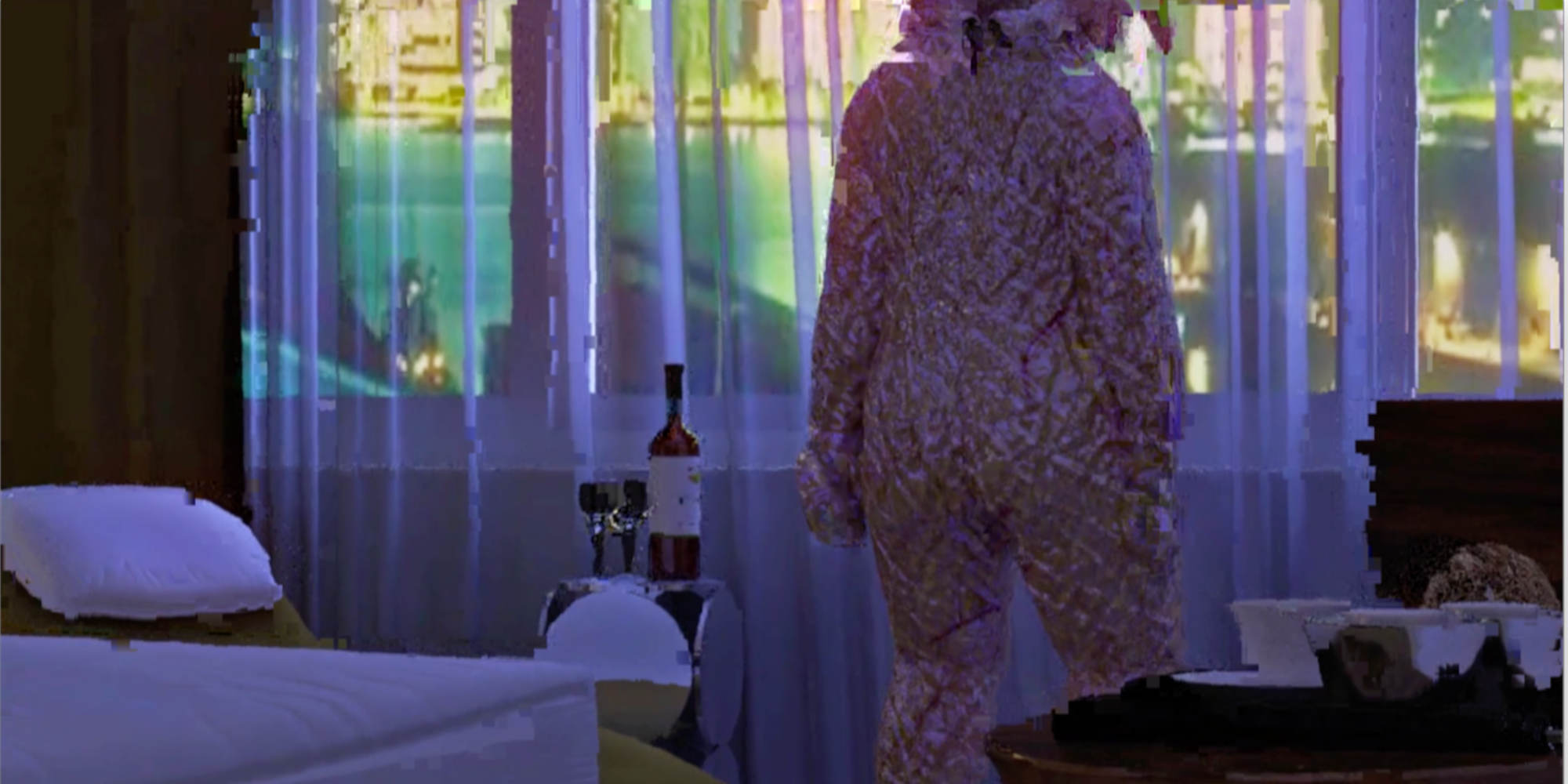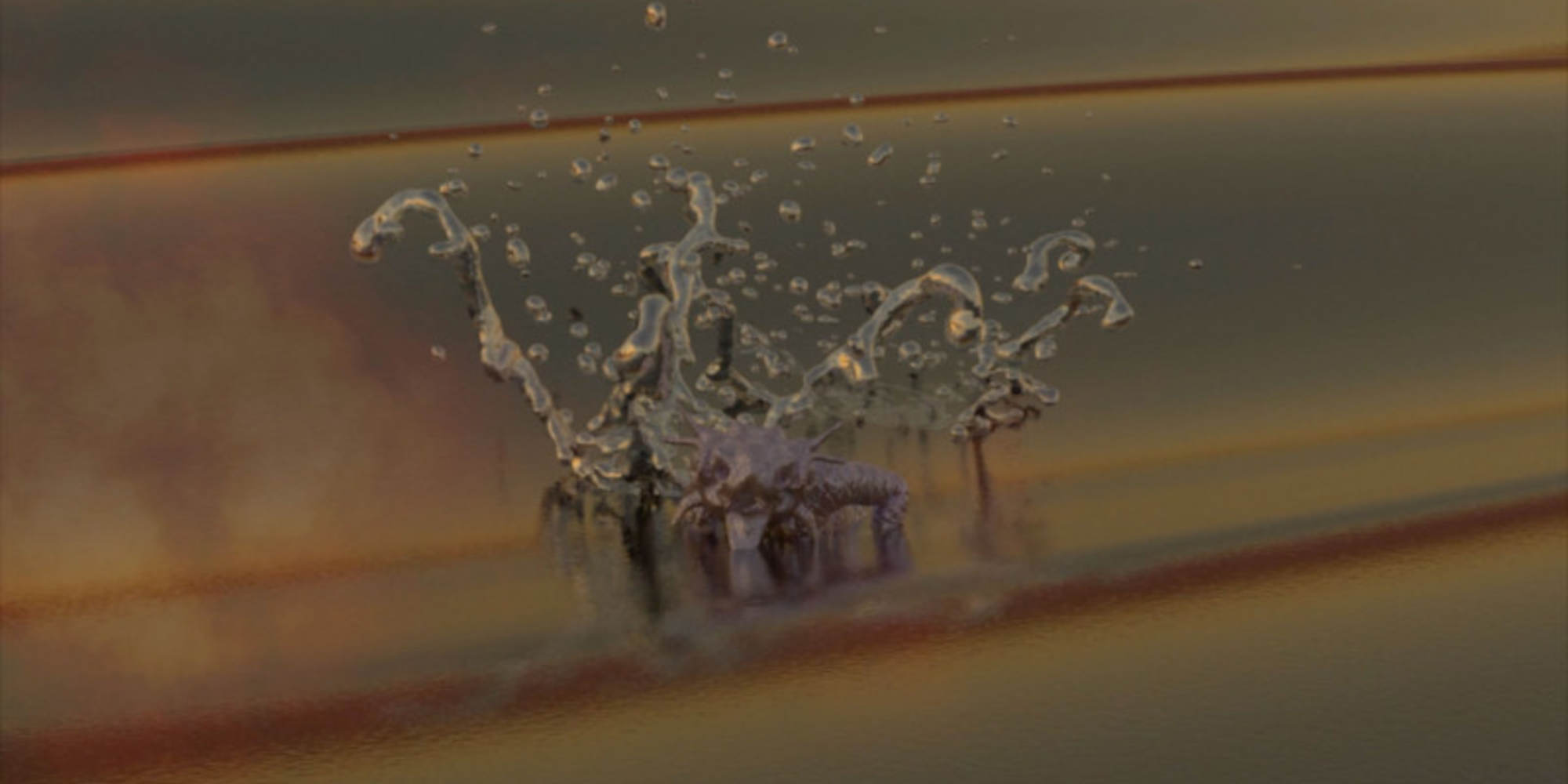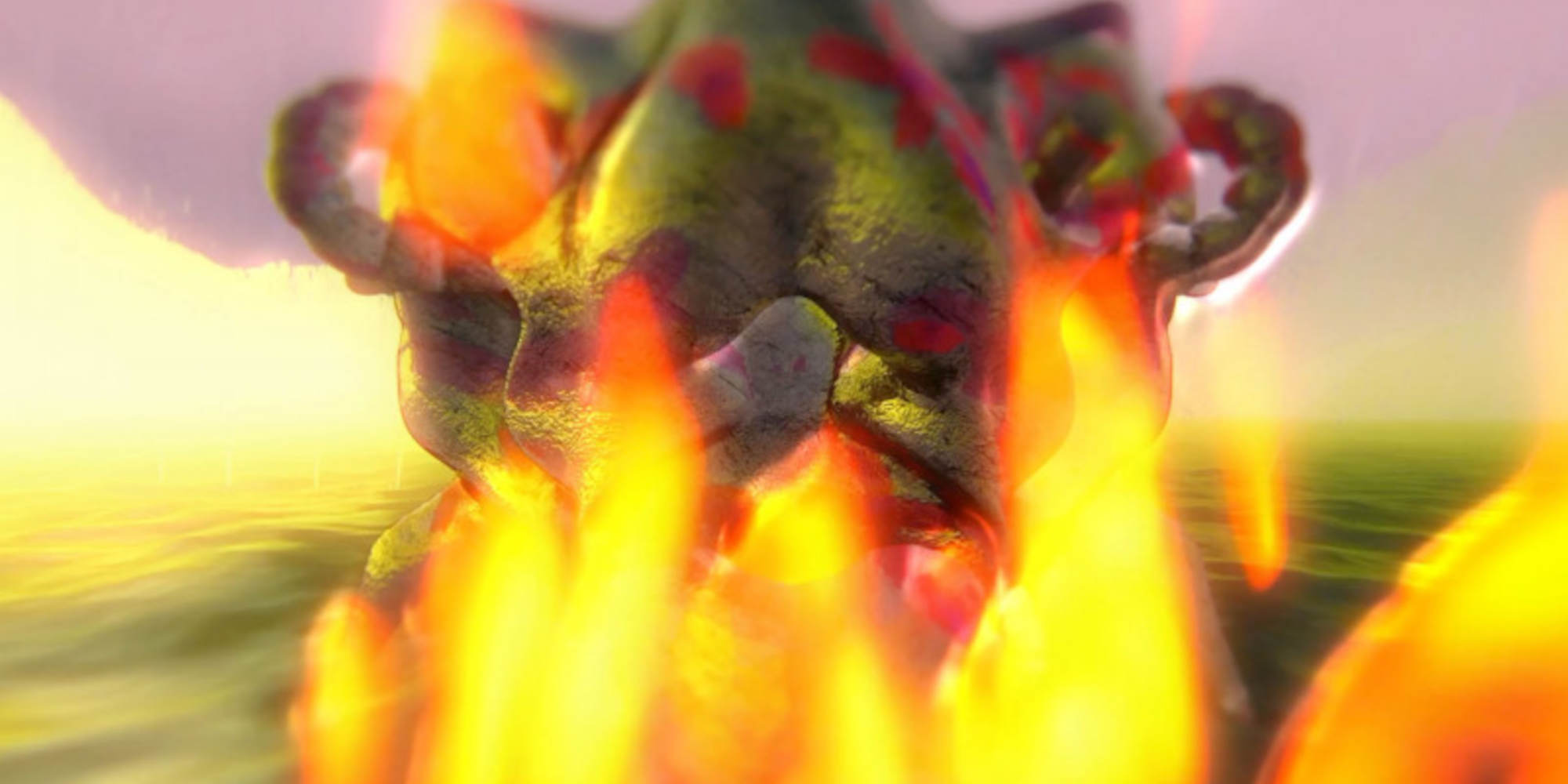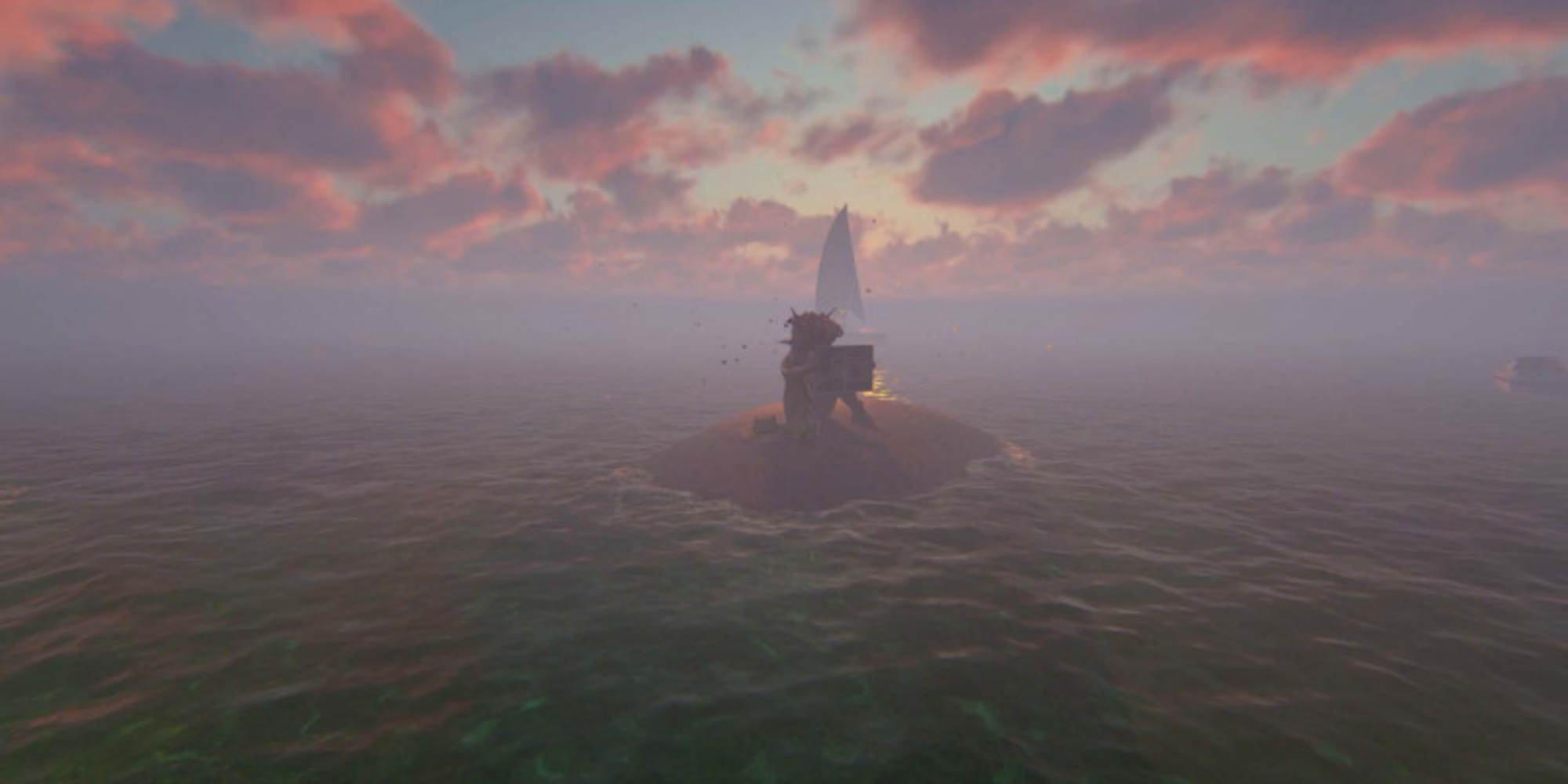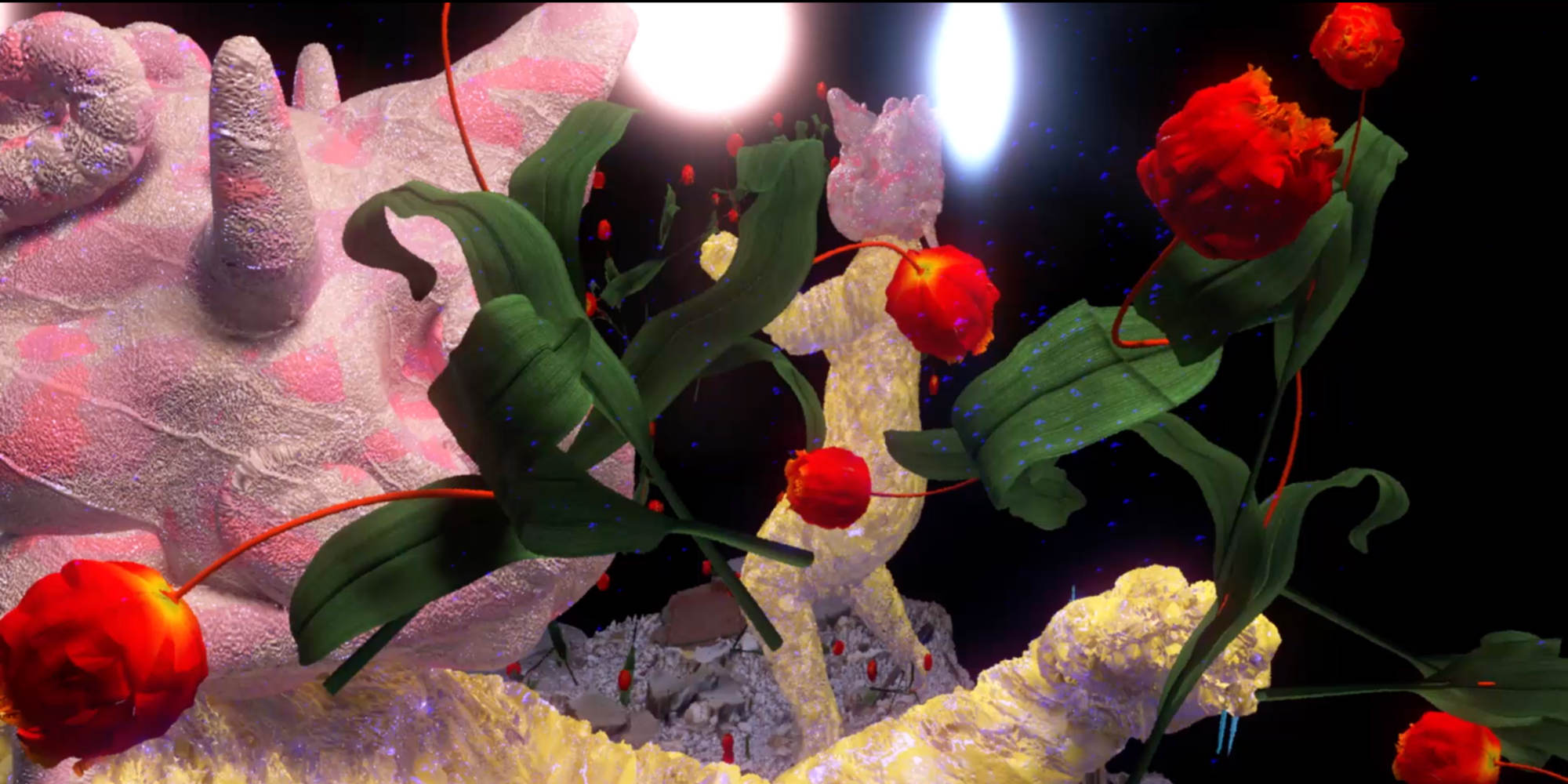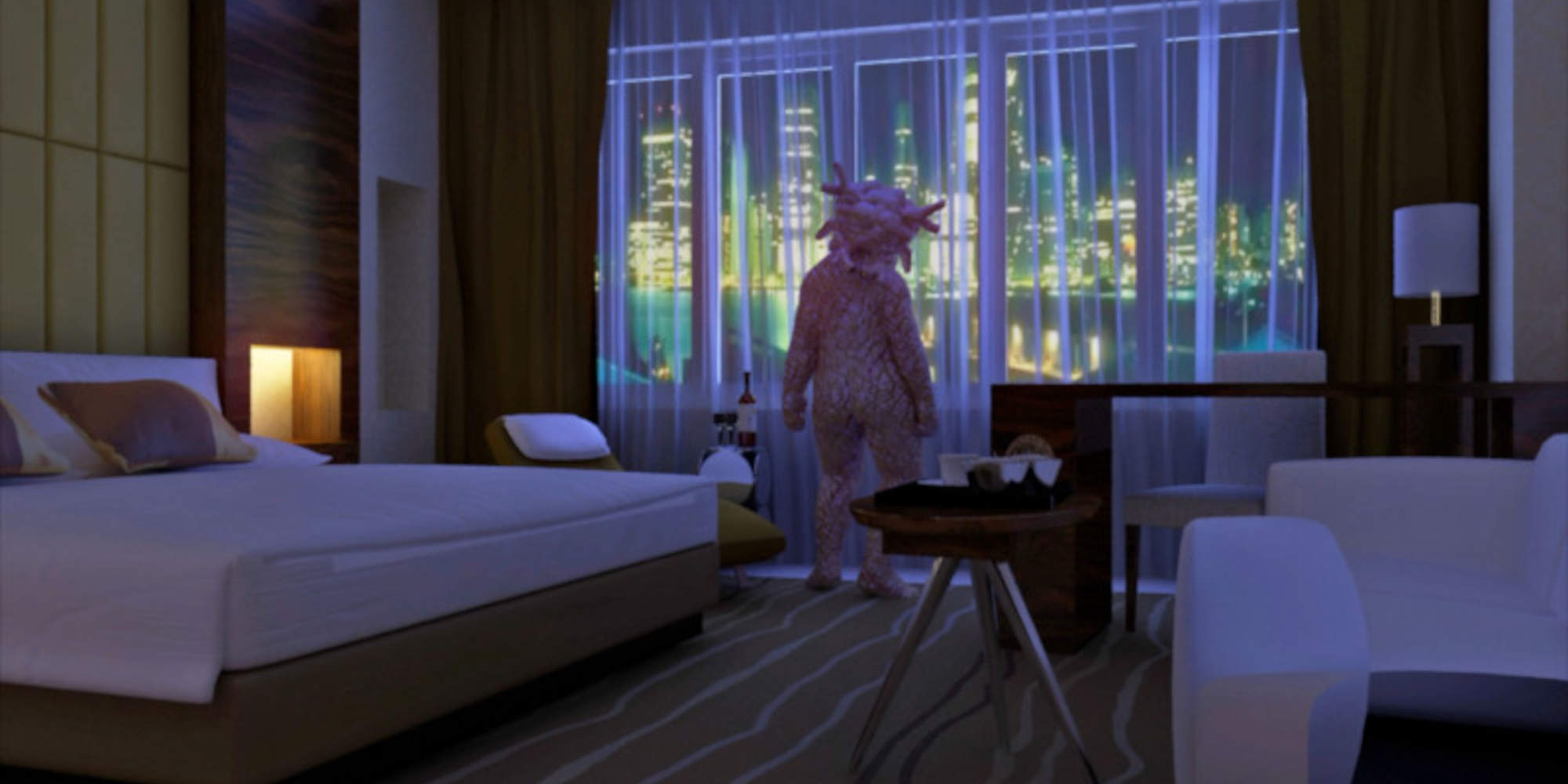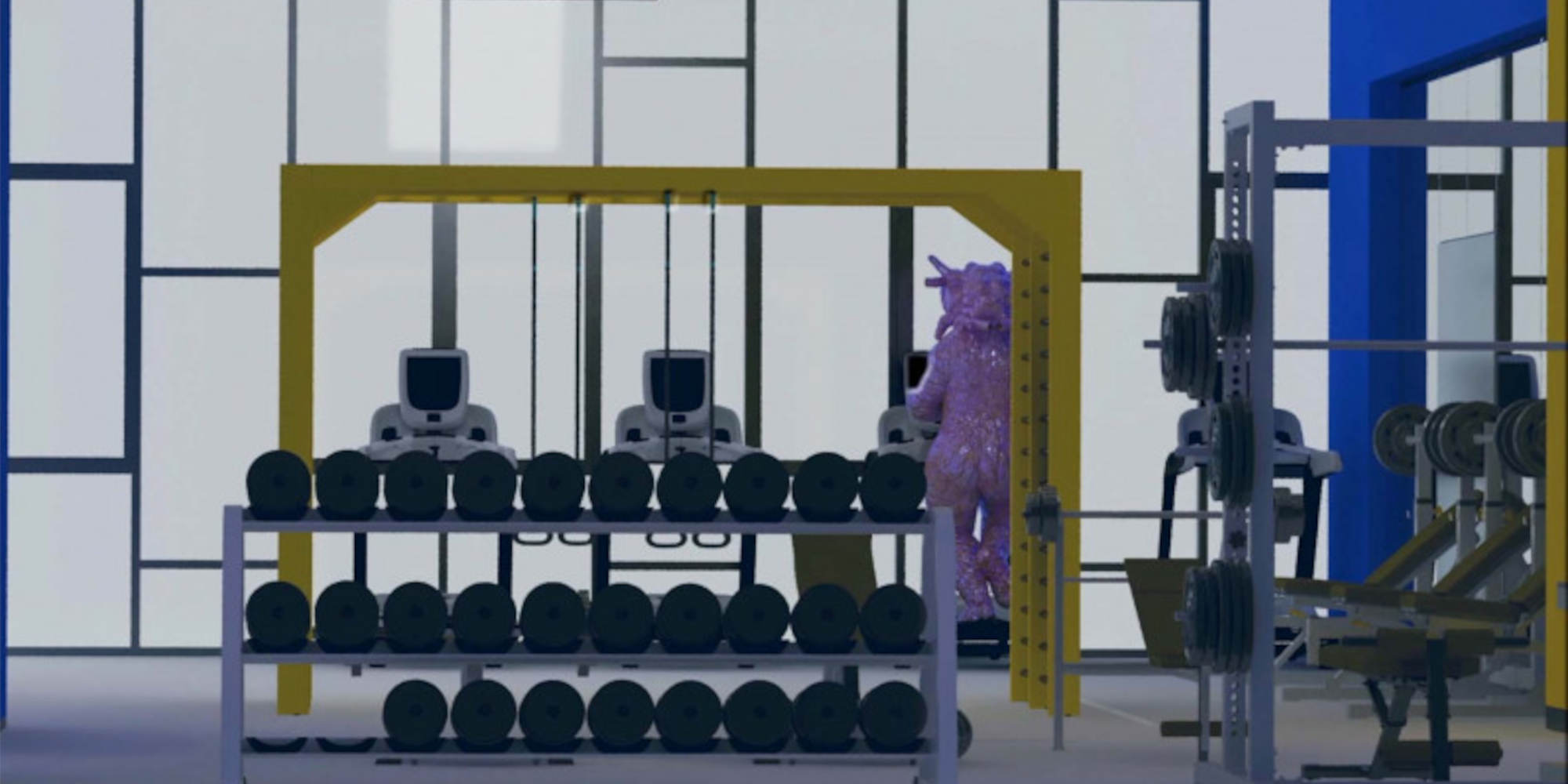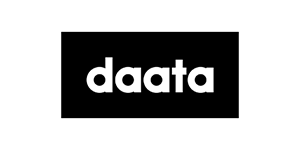Eva Papamargariti’s work explores the relationship and construction of the limits between virtual space and material reality, as well as the dynamic dissolution that takes place on the verge of these two “ecosystems.” Her practice delves into issues and themes related to simultaneity, the merging of our surroundings with the virtual, the constant diffusion of fabricated synthetic images that define and fragment our identity as well as the symbiotic procedures and entanglement that take place between humans, nature and technology.
Daata presents Eva Papamargariti
Superimposing moving image, sound, text and sculptural installations, she is creating narrations that are researching pragmatic or speculative scenarios and interactions among multitudes of critters situated in diverse conditions – from microscale to macroscale. Furthermore, she is focusing on processes that are established through online presence and the traces that our operations inscribe to the objects and habitat where we find ourselves situated, through our continuous interaction with devices and machinic artifacts.
Video
The Hollow Sound Of Longing
2020, HD video, 10 min 48 sec
Eva Papamargariti
The Hollow Sound of Longing is a series of videos that explore the interconnected themes of uncanny, desire and resilience. The protagonist is a creature whose form stands between a human and an animal, resembling a furry character that exists in simulated environments and acts in ways that can be both familiar and eerie, unexpected or boring.
The constructed specificity of the surroundings gets into a continuous and disorienting conflict with the grotesque existence of the figure, thus slowly getting more and more blurred and dismantled.
Find the exhibition and more about the artists on daata.art daata.art/art/the-hollow-sound-of-longing
Project Credits / Acknowledgements
Eva Papamargariti
Daata
David Gryn
Anna Mustonen
Biography
Eva Papamargariti is a Greek artist. She graduated from the Department of Architecture, University of Thessaly with a Diploma in Architecture (2012). She holds a Master Degree in Visual Communication Design from Royal College of Art, London (2016). Her practice focuses on time-based media but also printed material and sculptural installations that explore the relationship between digital space and material reality.
Her work delves into issues and themes related to simultaneity, the merging and dissolving of our surroundings with the virtual, the constant diffusion of fabricated synthetic images that define and fragment our identity and everyday experience, the symbiotic procedures and entanglement that take place between humans, nature and technology.
She has exhibited her work in cities like, New York, Los Angeles, Paris, London, Berlin, Seattle, Amsterdam, Shanghai, Toronto, Montreal, Athens in institutions museums and festivals such as the New Museum (New York), Whitney Museum (New York), Tate Britain (London), MAAT Museum (Lisbon), Museum of Moving Image (New York), MoMA PS1 (New York), Museum of Contemporary Art, Montreal, Athens Biennale( Athens), Thessaloniki Biennale (Thessaloniki), Transmediale Festival (Berlin).
Daata
Daata commissions original, digital artworks by established and emerging artists, allowing you to stream or download high-quality digital artworks on any device. Founded in 2015 by David Gryn, Daata is the leading platform for digital artworks. Through four avenues – Daata Editions, Daata Streaming, Daata TV and Galleries at Daata – Daata offers hundreds of original, digital works by an ever-growing portfolio of contemporary artists.
This program is part of 2020 – finally digital?!
The year 2020 began with a Big Bang, one that demanded the art industry pivot away from its established codes of conduct, immediately, as a matter of sheer survival. From the exchange of courtesies, to remote work structures, and to the reorganization of public and private spaces – old customs required immediate redesign in response to the crisis. As a result, the online space gained even more significance as the only platform for business and commercial transactions, affecting even the art industry and its age-old reliance on in-person interaction. However, across the art industry’s network of galleries, artists, institutions, auction houses, and biennials, the speed of adaptation, the ability to process the ongoing iterations and to find a customized response has varied dramatically.
2020 – finally digital?! is composed of three sections: a conference, invited curatorial projects, and digital gallery showcases. The conference will feature notable members of the art industry and their assessments of the art world’s digitization progress over the past year. The second section invites curators to report back from their communities on emerging positions that are acute right now. The third section amplifies galleries, which are the backbone of the art industry.
Christina Steinbrecher-Pfandt
Blockchain.art
Co-Founder & CEO
